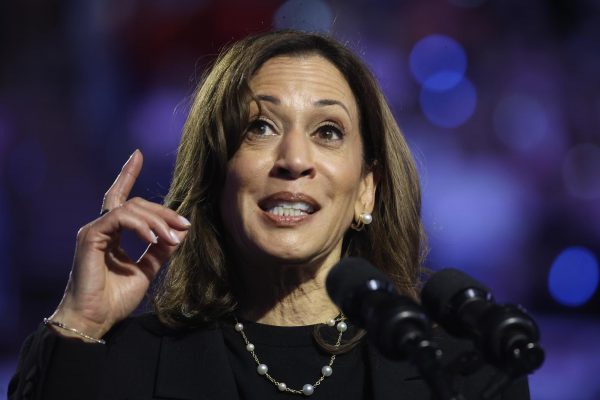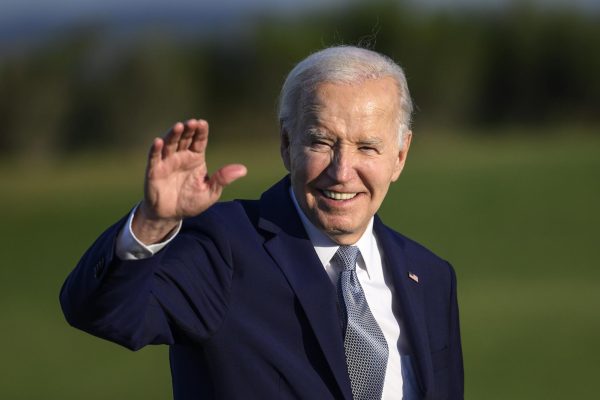Four months ago, on July 21, 2024, President Joe Biden announced via X [formerly Twitter] that he was withdrawing himself from the Democratic ticket for the 2024 presidential race, concluding his half-century-long career and passing the torch onto Vice President Kamala Harris as the Democratic candidate. This decision came after growing inter-party concerns on the topic of Biden’s mental sharpness. In his post, he stated that it was “in the best interest of my party and the country for me to stand down,” wishing to focus on fulfilling his duty as President for the remainder of his term.
2016 Hoover graduate and St. Thomas Aquinas history teacher Mr.Matthew Arnold spoke about the President’s decision and the Democratic ticket changing so close to the election.

“The right call would have been for Biden to not run for reelection at all,” he said. “That Biden has severely cognitively declined has been clear for years now — at least since 2022 — and I cannot believe that this was not known to the people surrounding Biden. The political right, as well as the dissidents of the left, had been pointing this out for some time before he crashed and burned in the debate. Biden campaigned as a ‘transitional figure,’ and should have kept to that promise, allowing the Democrats to have a primary.”
This abrupt turnaround left Harris a 107 days to run her campaign. Yet, in a matter of months, a record $1 billion was raised, according to the Associated Press. Harris also received various endorsements from celebrities like Arnold Schwarzenegger and Lady Gaga to Republicans such as Anthony Scaramucci and Olivia Troye. Despite this, Harris received roughly seven million fewer voters than Biden [who received 81.3 million votes] did in 2020, according to Axios [Nov. 21], while Trump gained 2.6 million more votes than he did in 2020.
“In 2020, Biden represented a return to Obama-era normalcy, which got millions of people out to vote against the perceived chaos of the Trump administration. Once in power though, Biden presided over what was perceived to be an even more chaotic four years. Harris is representative of the incumbent administration, and her refusal to speak frankly and honestly about the problems of the last four years only hurt her,” he said.

In addition, the former and soon-to-be President Donald Trump survived two assassination attempts within recent months, one of which took place at an open-air rally in Butler [PA] July 13. The would-be assassin, a 20-year-old man named Thomas Crooks, fired on the rally despite numerous sightings of a “suspicious person.” The second attempt occurred Sept. 15 at Trump’s very own golf course in West Palm Beach [FL]; shortly after the incident, authorities identified 58-year-old Ryan Wesley Routh as the suspect.
The divisive election was held last month; since then, President-elect Trump has been assembling his cabinet nominees at record speed. In addition, President-elect Trump met with President Biden at the White House Nov. 13, and Biden promises a peaceful transition of power.
With so much news delivered from various platforms, tensions are high and social media often fuels the cross-party conflict and strife.
“At least one positive effect of social media is that it does give a platform outside of the traditional ‘corporate’ media world where information can be distributed,” Arnold said. “I mentioned above that it has been obvious that Biden’s decline began in 2022: videos of him in states of confusion circulated online, while the traditional media largely ignored these moments. On the other hand, social media also pushes people into echo chambers. Part of what caused the election to go so poorly for the Democrats was that they were in their own echo chambers, convincing themselves of their own inevitable victory when it was rather obvious that they were going to lose.”



